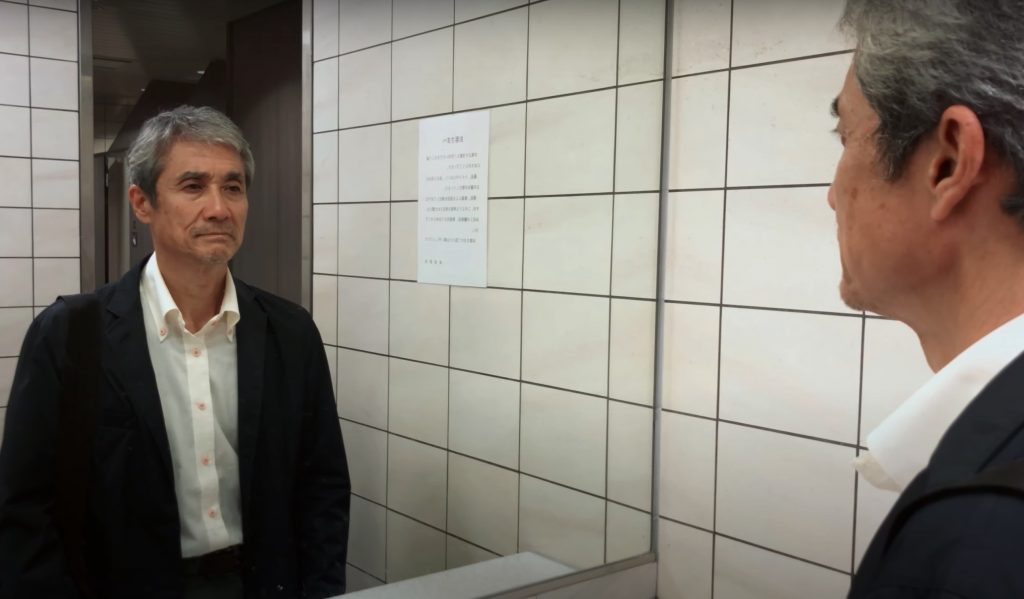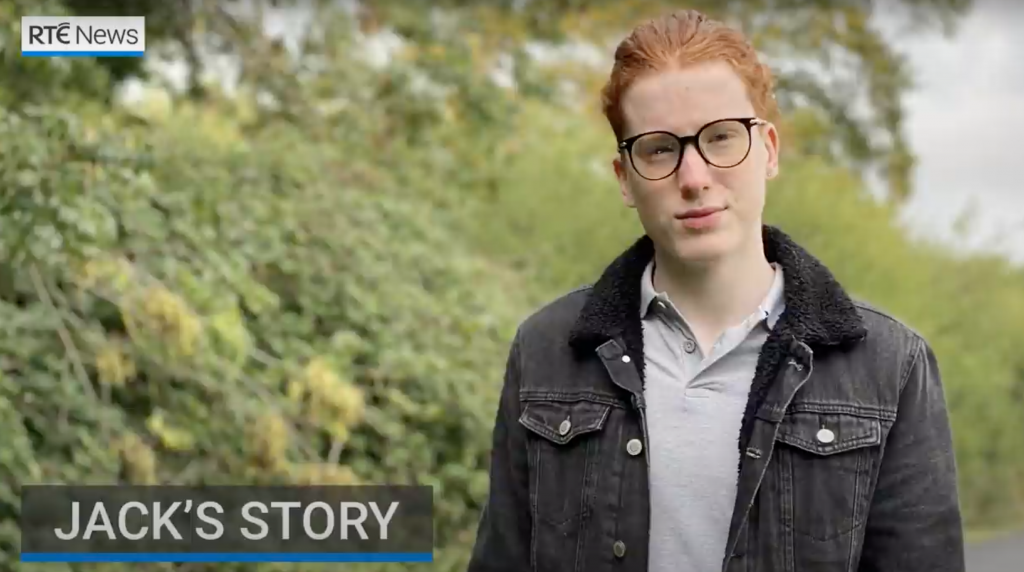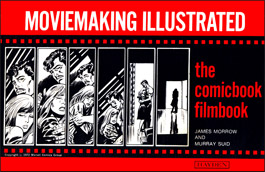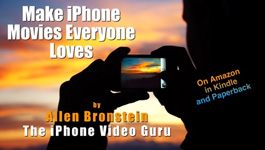“The Lost Pen” is a moving docudrama about journalists pushed out of their native lands. The filmmaker Beraat Gökkuş has firsthand knowledge of the subject. A Turkish director and journalist, he has lived in exile in Paris since 2016. The fourteen-and-a-half minute, single-shot film will be distributed in 2022, but the trailer does a fine job of conveying the cinematic style and also the lives of the characters who play themselves. You’ll find an interview with the director below.
Interview with Beraat Gökkuş
MobileMovieMaking: How did you develop your skills as a filmmaker?
Gökkuş: I was studying political science at the University in Istanbul, but just before graduating I decided to be a director. I love watching movies and telling stories, and took moviemaking and screenwriting workshops. Of course I continue to watch movies. There was a period that I was watching three films per day. While I read a lot about film, but not “how to make movies.” I prefer interview books with directors and cinematographers. During the first work shop of filmmaking that I did we chose three projects. One of them was my first short film “Apparence.” We did it with a Betacam. And here I am.
MobileMovieMaking: How did you come up with the terrific idea for “The Lost Pen”?
Gökkuş: I lived in Maison des Journalistes (a refuge for exiled journalists) for almost two years (between 2016-2018). I wrote the script when I was living there. In my writing, where the story happens has an important influence. I get a lot inspiration from the “place”. So I said to myself I have to tell a story about those exiled journalists because they are hidden heroes of freedom of speech.
MobileMovieMaking: OK, you had the location. And then…?
Gökkuş: I asked myself how will I do it? An interview with them would be kind of boring to me. So I said what about a fiction—a docudrama where the journalists can explain their stories as themselves. As I told you the place has an inspirational influence on me. In the Maison des Journalistes you can go to your room with a corridor that has two entrances. I realized that I could do a tour with a camera without a cut—just one long take. I always like challenges. And then I asked myself why make a tour and meet with other people in the same dormitory? And I came up with the idea that my main character lost something and was looking for it. It could be anything. As I thought about all those exiled journalists who have lost the freedom of speech in their countries, I thought it should be an object that could be a metaphor of freedom of speech: The Pen.
MobileMovieMaking: How did the idea of writing a poem come in?
Gökkuş: That comes from my love of poems and poetic cinema.
MobileMovieMaking: How did you plan the shoot?
Gökkuş: I started with a script. Then before shooting I worked the cartography and mise en scene with my smartphone and gimbal.
MobileMovieMaking: What gear did you use?
Gökkuş: I shot “The Lost Pen” with an iPhone X, the FiLMiC Pro camera app, and an Osmo Mobile. I used FilmicPro App. For the sound I hired a sound engineer. During 15 minutes there is no cut in my film but still I hired an editor for the color and the credits and subtitle etc. We worked on Adobe Premier.
MobileMovieMaking: Why did you decide to shoot the movie using a mobile device rather than a traditional camera?
Gökkuş: Honestly I would like to work with an Alexa Mini and Osmo Ronin with a cinematographer. But I had no money. I looked for funding but could not find it. This script waited for a time. I was almost like “forget that project.” And I wrote another script and wanted to shoot it. Then I talked about it with my girlfriend, who is a great photographer and was with me during the production of “The Lost Pen,” She told me ,”Why you don’t shoot this film with what you have ?” Before this film, I did a short documentary and a short experimental film with my smartphone. So I was really experienced about mobile film making. Then I said to myself, “OK ! Just be simple and explain your story with what you have.”
MobileMovieMaking: How did you get such polished performances from your subjects? I believe they were all exiled journalists, not actors.
Gökkuş: When I was writing my script, I asked each one to tell me a real and memorable story related to coming to France and living there. Then I put those stories directly in my script. And during filming I said to them, “It is your story. You lived it. So just explain your story again.” And they shared their stories as themselves.
MobileMovieMaking: And your lead character—the man who lost the pen?
Gökkuş: Ali Alwani who plays Karam is a Syrian actor who is exiled right now in France. And the fiction part of my film is the story of Karam, the poet. Recently, he wasn’t working as an actor. But he has a great talent. So with Ali I was lucky. I explained his character. He is already someone who lost a lot of things during Syrian civil war. So he did it perfectly. I am very happy about his performance in my movie. Without him I couldn’t have done this movie. We did only few retakes.
MobileMovieMaking: During the shoot did you encounter any big problems?
Gökkuş: I said to my actors and actresses we will start at 12:00 pm and will finish at 17:00 pm. At the middle of the shooting one of them said I have to go. I understood that because they are not profession actors and I am not paying them. So I said ok just let us take one more shot. She accept, we did and you are watching it now.
MobileMovieMaking: How did you find the music—especially for the dance sequence?
Gökkuş: I asked my friend Ahmet who is dancing in this scene, “Please show me some Yemenite songs that you can do with a traditional dance?” Then I chose the one you hear in the movie. It’s a great song. That dance scene is very important to me. The scene reminds me of the famous dance scene of Antony Quinn in “Zorba the Greek.”
MobileMovieMaking: Now that the film is finished is there anything different you might have done?
Gökkuş: I like my films with their mistakes. It’s like having a kid. So I don’t wanna say, “I could do this or that” but of course I learned from my mistakes. Let’s see with the next movie how much I learned.
MobileMovieMaking: Do you have any advice for someone who is just beginning to make movies?
Gökkuş: Making movies is not something that belongs to a group of elites. If I did it, you can do it also. And you can do it better then me. So just take a smart phone. Find or write a simple story. Use your friends as your team and as your actors. Then just make a movie.
MobileMovieMaking: What is the best way for readers to learn more about you and your work?
MobileMovieMaking: Is there anything else you’d like to share?
Gökkuş: Oh yes. I finished my next short movie script. I love that story. I am filming a documentary about black American jazz musicians who live in Paris right now. Because of Covid-19 I lost a lot of time, but I hope to finish it soon. And I have three stories that I wanna do as a feature movies.
# # #
The editors of MobileMovieMaking have chosen “The Lost Pen” as the Mobile Movie of the Week.



 Previous post
Previous post
 Next post
Next post





